The Remarkable Andrew
Brief Synopsis
Cast & Crew
Stuart Heisler
Brian Donlevy
William Holden
Ellen Drew
Montagu Love
Gilbert Emery
Film Details
Technical Specs

Synopsis
In 1941, in Shale City, Colorado, youthful city bookkeeper Andrew Long is unable to balance the city's yearly budget and discovers that city clerk Art Slocumb and puchasing agent Sam Savage are trying to cover up for embezzlement. Honest Andrew is suspended when he insists that he be allowed to balance the budget. Though despondent, Andrew nonetheless prepares to attend a dance with his girl friend, Peggy Tobin, and returns to his room at Mrs. Grondos' boardinghouse to dress. He is surprised when his hero, nineteenth century general and former President Andrew Jackson materializes in his room and demands some Maryland rye whiskey. Andrew rushes to the corner drugstore for the liquor and cancels his date with Peggy. Jackson is still in his room when he returns and informs him that Andrew's great, great grandfather saved his life, and he has now come to help Andrew. When Peggy shows up with her last-minute date, Randall Stevens, she becomes hysterical to learn that she has been stood up for the ghost of Andrew Jackson. Neither Peggy nor Randall can see Jackson, and assume that Andrew is drunk. The next day, gossip about Andrew's strange behavior spreads through the town and is reinforced when people see him apparently talking to himself. Jackson, dressed in full historical military regalia, is very real to Andrew, however, and accompanies him to his meeting with the mayor. Mayor Ollie Lancaster offers to give Andrew a raise on condition that he drop his petition to investigate the discrepancy in the budget, but Andrew refuses to accept the bribe. Jackson notices that Lancaster is using a recording machine, but as he is unfamiliar with the device, he has no idea that the conversation is being recorded. After receiving advice from physician Clarence Upjohn about how to handle Andrew, Peggy confronts her boyfriend and discovers he is absolutely sober. She demands that if Jackson does not leave Andrew, then whe will leave him, and to Andrew's surprise, Jackson goes. Later, Andrew is arrested for embezzlement and encounters his ghostly friend again in his jail cell. Jackson has brought with him the finest thinkers from American history: George Washington, Thomas Jefferson, Benjamin Franklin, Chief Justice John Marshall, Jesse James and an unknown volunteer soldier named Private Henry Bartholomew Smith. Andrew explains to his guests that he has known for some time that various government officials have been buying land that they knew was slated for a new street and selling the property for a personal profit. The historical figures remind him that democracy is not a gift, but a responsibility, and with their assistance, Andrew represents himself at his trial. The ghosts, meanwhile, investigate the mayor's office to find evidence of his corruption. Franklin discovers the record player, whose usage Jackson demonstrates. To their surprise, the machine plays back a conversation from that morning, in which the corrupt officials pressure an unwilling Judge Ormond Krebbs to find Andrew guilty in court. The evidence at the trial weighs heavily against Andrew until his ghostly friends relay to him the secret conversation. Leaving Krebbs's name out of the transcription, Andrew repeats the details of the incriminating conversation to the court until prosecuting attorney Beamish calls for a recess. By the time they return, all the corrupt officials have resigned from their posts pending prosecution. The charges against Andrew are then dropped, and he is promoted to chief city treasurer. As his last official duty, Krebbs officiates at Peggy and Andrew's marriage. On their wedding night, Andrew, although grateful to his hero, is unable to relax until Jackson agrees to leaves. As he wanders into the night, Peggy is finally able to see her husband's mentor.

Director

Stuart Heisler
Cast

Brian Donlevy

William Holden
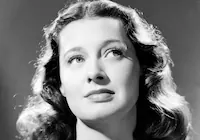
Ellen Drew

Montagu Love

Gilbert Emery

Brandon Hurst
George Watts
Rod Cameron
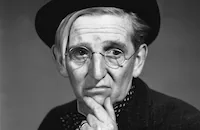
Jimmy Conlin
Richard Webb
Spencer Charters

Minor Watson

Clyde Fillmore
Thomas W. Ross
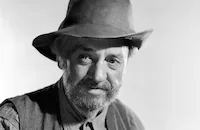
Porter Hall
Wallis Clark
Milton Parsons
Helena Phillips Evans
Tom Fadden
Harlan Briggs
Nydia Westman

Frances Gifford

Martha O'driscoll
Chester Clute
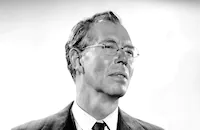
Walter Baldwin
William Halligan
Margaret Seddon
Glen Graham
Ruth Daye
Noel Neal
Jane Cowan
Rudd Weatherwax
Douglas Deems
Mrs. Deems
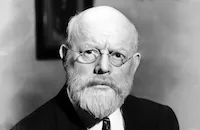
Howard Mitchell
Margaret Mcwade
W. Laurence

Chester Conklin
L. Davis
Ed Randolph
Crew
George Almond
Lew Arnheim
John Ashton
William Austin
Bob Aylesworth
Guy Bennett
Arthur S. Black
Richard Blumenthal
E. Bradfield
Richard Brandow
Arnold Braun
Adolph Bricker
F. Calvin
A. D. Cook
Clara Cottrell
Hans Dreier
C. Edridge
Robert Ewing
Bryon Fitzpatrick
Howard Fogetti
Jack Francis
Al Gonzales
Hugo Grenzbach
Tom Hadley
Edith Head
Earl Hedrick
Hazel Hegarty
Frank Hoffman
J. Jackson
Bob Jameson
Frank Johnson
Millard Kaufman
Victor Kerr
Hank Kessler
C. Klein
James Knott
Roy Larsen
Jack Leffman
Al Lipsey
Bob Littlefield
Archie Marshek
E. Mauriquez
L. D. Mcknight
Ray Moyer
John Robert Murphy
R. Murray
Fred Nixon
Richard Olson
Frank Parmeter
Martin Pendleton
Fred Peters
Adele Pruitt
Lyle Ratican
Robert Reed
Merle Reeves
Jack Roberts
Al Roelofs
Leonora Sabine
Charles Schneider
Charles Schoenbaum
Henry Schuster
Dominic Seminerio
H. Shenk
Ralph Shenk
Fred Shockey
Harold Shumate
Theodor Sparkuhl
H. Thompson
Al Trosin
Charles Turner
James Vincent
Wally Westmore
Paul Whitson
Kenneth Wiley
Pat Williams
Lothrop Worth
Cecil Wright
Victor Young

Film Details
Technical Specs

Articles
Ellen Drew, 1914-2003
She was born Esther Loretta "Terry" Ray on November 23, 1914, in Kansas City, Missouri. The daughter of a barber, her family moved to Chicago when she was still an infant and she lived a very quiet childhood far removed from the glamour of Hollywood. She was encouraged by some friends to enter a beauty contest when she was just 17. After winning, she tried her luck in Hollywood, but found that they were no immediate offers for her particular talents.
She eventually took a waitressing job at C.C. Brown's, a famed Hollywood Boulevard soda fountain, and had virtually abandoned her dreams as a starlet when William Demarest, a popular actor's agent and well-known character actor, spotted her. Demarest arranged a screen test for her at Paramount, and she was promptly placed under contract for $50 a week.
For the first few years, (1936-38), Drew got only bit parts, and was often uncredited. When she finally got prominent billing in the Bing Crosby musical Sing You Sinners (1938), she decided to change her name, from Terry Ray to Ellen Drew. She earned her first major role in Frank Lloyd's If I Were King (1938) opposite Ronald Colman, yet for the most part of her career, rarely rose above "B" material and second leads. Still, she had some fine exceptions: Preston Sturges' enchanting comedy Christmas in July (1940), with Dick Powell; Tay Garnett's lighthearted war romp My Favorite Spy (1942) co-starring Kay Kyser; Julien Duvivier's taut The Imposter (1944), holding her own with a brooding Jean Gabin; and Mark Robson's chilling low-budget chiller Isle of the Dead (1945) opposite Boris Karloff. Drew made some notable television appearances in the late '50s including Perry Mason and The Barbara Stanwyck Show, before retiring from the entertainment industry. She is survived by her son David; five grandchildren; and five great-grandchildren.
by Michael T. Toole

Ellen Drew, 1914-2003
Quotes
You've been trying to keep an honest accounting of city money. You've been dealing with politicians. You've been standing up for your own rights. Haven't you? Naturally, you landed in jail.- Gen. Andrew Jackson
Trivia
Notes
Some of the film's opening credits are spoken. Andrew Jackson (1767-1845), who was the seventh President of the United States, served from 1828 to 1836. Dalton Trumbo's story was first titled "The General Came to Stay." According to modern sources, in 1940, Paramount paid Trumbo to write a novel based on his original story, which was then turned into a screenplay. According to a Hollywood Reporter news item, Trumbo was initially slated to direct the film. Modern sources also indicate that during production, the two lead actors, Brian Donlevy and William Holden, suggested that Trumbo take over direction because they were dissatisfied with Stuart Heisler's work, but Trumbo refused. A June 1941 Hollywood Reporter news item reported that Paramount considered Tim Whelan for director. Modern sources add the following actors to the cast: Gibson Gowland, Theodore Lorch (Jurists); Monte Blue, Emory Parnell (Policemen); Hobart Cavanaugh (Teller); James Millican and Margaret Mann. Some scenes in the picture were filmed on location in Carson City, NV.














